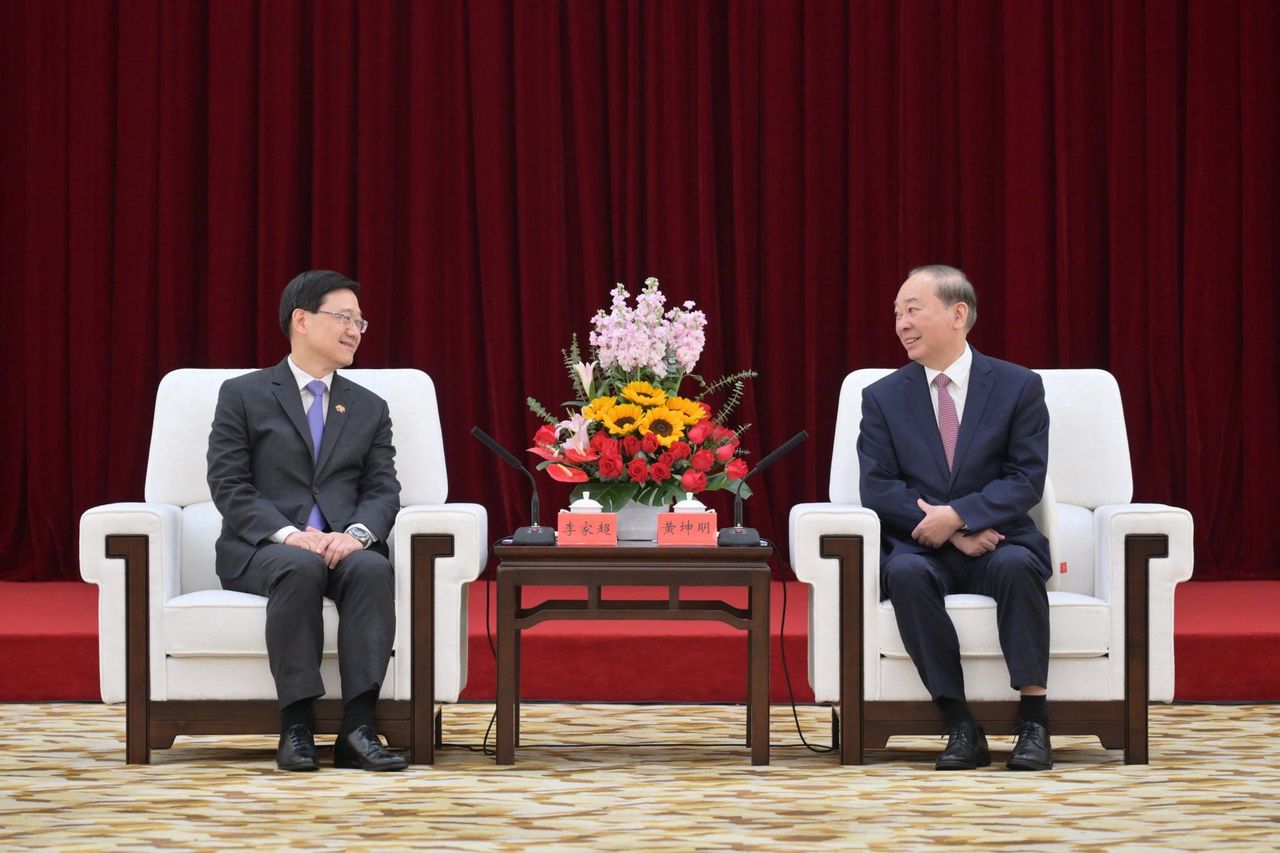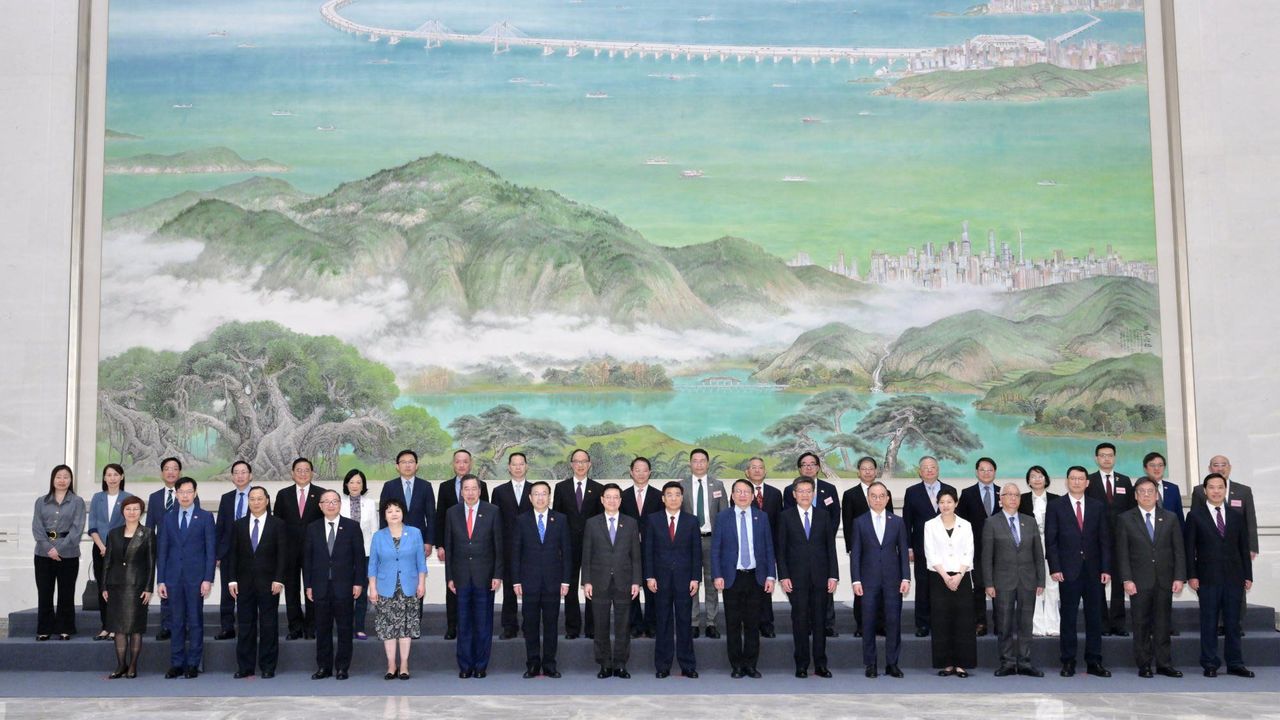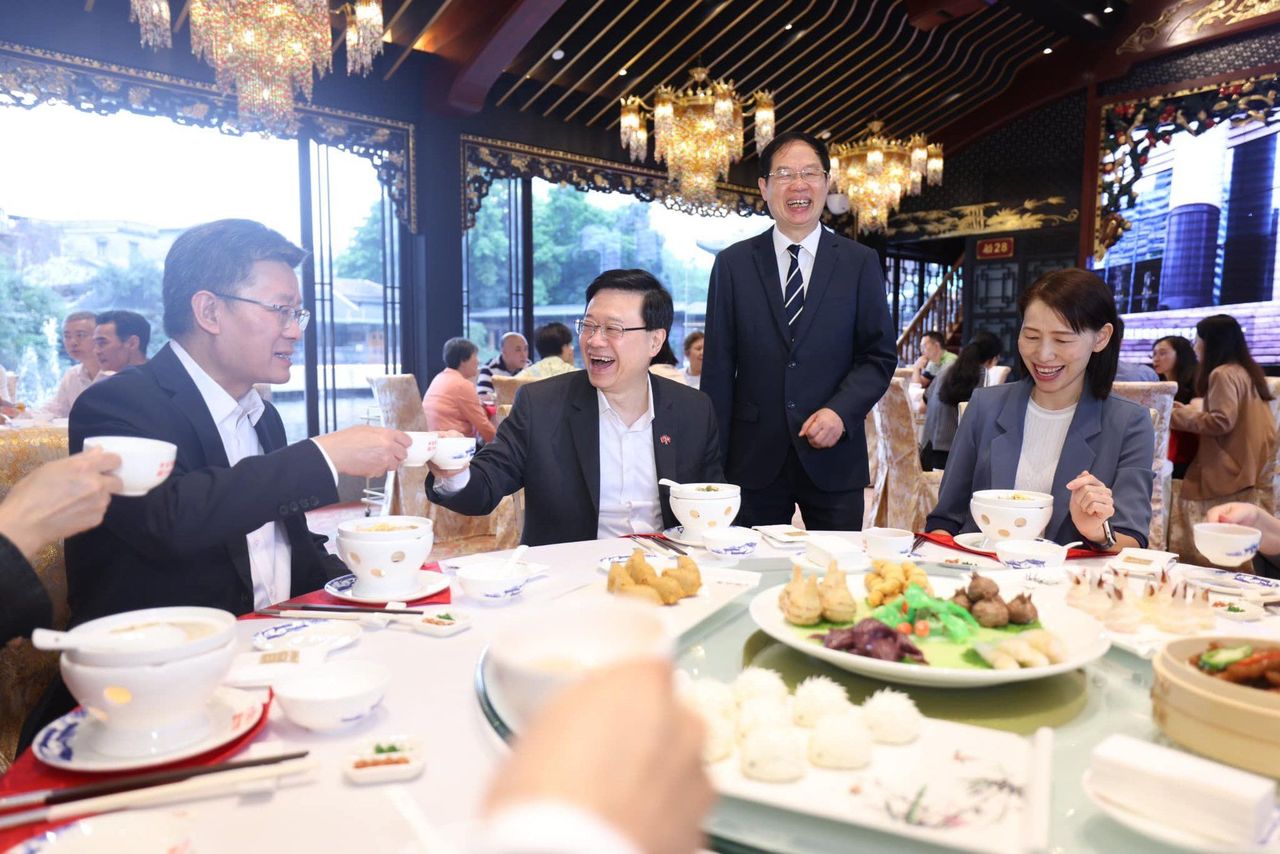Hong Kong News

Hong Kong leader wraps up bay area trip hailing ‘consensus’ with 4 cities
Chief Executive John Lee Ka-chiu has hailed the “high degree of consensus” on collaboration that Hong Kong and four mainland Chinese cities have forged during his trip to the Greater Bay Area, saying it also serves as a starting point for the financial hub to make up for time lost because of the political turmoil of recent years.
Wrapping up the four-day trip with 83 lawmakers and bureau chiefs to Shenzhen, Dongguan, Foshan and Guangzhou, city leader Lee on Monday also pointed to the “harmonious atmosphere” between officials and legislators throughout the visit, which was “a huge contrast” to the past.
“The days when our legislature was paralysed by filibustering have passed. We failed to push ahead with a lot of things which we had hoped to do back then,” Lee said upon his return to Hong Kong, referring to the era before Beijing revamped the city’s electoral system in 2021 to ensure only “patriots” govern.
“So we must now catch up the time [we’ve lost], for achievement and to strive for the top position. We should be innovative to tackle the bottleneck in turning Hong Kong into a leading city in the world.”
 John Lee (left) met party chief Huang Kunming in Guangzhou.
John Lee (left) met party chief Huang Kunming in Guangzhou.
Lee said he was pleased to see a united executive branch and legislature, as witnessed in the constructive communication and solidarity during the trip.
He added the tour had also illustrated Hong Kong’s devotion to actively integrating into the bay area, Beijing’s plan to link the city, Macau and nine Guangdong cities into an economic powerhouse by 2035.
“Hong Kong and the four mainland bay area cities [visited] have reached a high degree of consensus to push forward high-quality development within the area, with abundant opportunities awaiting,” Lee said.
One of the highlights, he said, was that officials in Foshan had told him it was “more than willing” to cooperate on innovation and technology under the model of “Hong Kong invents, Foshan manufactures”.
Lee said he would travel to the other mainland bay area cities in the future.
Legislative Council president Andrew Leung Kwan-yuen described the solidarity between the legislature and executive during the trip as “unprecedented”.
“The bay area mainland cities have well witnessed how united we are in fostering the city’s development. I believe many lawmakers will brief Hong Kong society on what they learned on the trip, in a way to boost Hong Kong people’s confidence towards this national development plan,” Leung said.
 Delegation members and mainland officials in Guangzhou.
Delegation members and mainland officials in Guangzhou.
For the four-day trip, which started on Friday, the delegation first headed to Shenzhen, before splitting into two groups, visiting Dongguan and Foshan respectively, before merging in Guangzhou, the last stop.
Places visited on the trip covered the areas of innovation, art and culture, youth development and environmental protection.
Before returning to Hong Kong, the delegation met provincial officials, including Guangdong party chief Huang Kuming and governor Wang Weizhong. Earlier, the group had lunch with Guangzhou party secretary Lin Keqing.
Lin was quoted as saying he hoped to press a “fast-forward button” to expedite collaboration in developing the bay area. Incentives to lure more investments from Hong Kong were also planned, he said.
Lawmaker Gary Zhang Xinyu told the Post that Lin had pinpointed specific sectors for closer partnerships.
“Lin said he expected collaboration with Hong Kong could be achieved in fields such as finance, innovation and technology, trade, aviation and legal services,” Zhang said.
 Guangzhou mayor Guo Yonghang (left) shares breakfast with John Lee (second from left) on Monday.
Guangzhou mayor Guo Yonghang (left) shares breakfast with John Lee (second from left) on Monday.
Lawmaker David Lam Tzit-yuen said Guangzhou officials were also considering offering investment incentives to Hongkongers, ranging from tax concessions to eased licensing measures.
City leader Lee earlier wrote on his Facebook page that he had met Guangzhou mayor Guo Yonghang over breakfast in a traditional Chinese restaurant before visiting a water purification plant in the city with the delegation.











